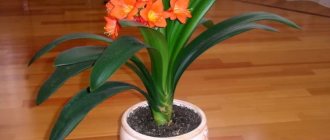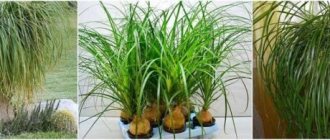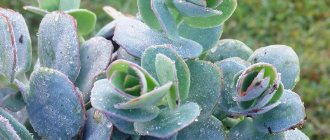At home, avocados can be easily grown from the seed by purchasing the fruit in the store. In nature, the tree reaches 20 meters, but the height of an indoor plant is limited to 2 meters.
There are two ways to germinate an avocado seed at home. The first - with the help of water and the second - planted immediately in the prepared substrate. However, in both cases, for successful cultivation it is necessary to adhere to certain rules.
Material for planting should be taken only from fresh and sufficiently ripe fruits, which are carefully cut in half so as not to damage the large seed.
Experienced gardeners advise keeping it in hot water (up to 50 degrees) before planting to avoid root rot. The pit is then cleared of its dark skin to prevent mold from developing during germination.
Peeling recommended
The top of the seed has a pointed shape, and the lower part, which forms the roots, is wider. If you are not ready to plant the seeds right away, you can wash them and keep them in a jar of water for a while so that they do not dry out.
Helpful tip: Avocado seeds that have begun to crack are best for planting because they develop roots more easily and quickly.
When is the best time to germinate and plant an avocado seed in the ground: timing.
For these purposes, you need to purchase ripe fruit. Unripe fruits are not suitable, since you will not be able to grow a crop from such a seed. It is worth understanding that the thickness of the peel is quite decent, so you need to initially germinate it in order to then plant it in the soil.
Drop off times may vary. When it’s convenient for you, because at home the temperature conditions are almost always the same. As for seed germination, usually the sprout can be seen after 3 weeks or 3 months. Yes, indeed, the sprout takes a long time to germinate.
germinate and plant an avocado seed
Pollination
Growing an avocado is not as difficult as getting it to bloom, much less bear fruit. Although the plant can theoretically self-pollinate, positive results can only be achieved by cross-pollination.
In the wild, not every avocado flower bears fruit. A twenty-meter, profusely flowering tree produces on average only 170-180 fruits. Sometimes a little more, sometimes a little less. At home, artificial cross-pollination is done with a soft brush when the flowers bloom and the pollen ripens. This procedure is carried out early in the morning on a sunny day. Cross-pollination is done three times a month, and then fertilizing is done.
If the avocado growing conditions have been violated, then you may not expect fruit from the plant.
Which side to plant an avocado seed?
It is worth noting that it is not enough to simply immerse the seed in the ground and water it. Because the peel is quite strong and does not break easily. Therefore, the ideal option is to drill small holes in the bark, insert toothpicks into them, and immerse the avocado pit with the blunt side down. You can simply put a bone at the bottom of the glass and wait for it to hatch.
Avocados need to be planted in the soil with the blunt side down, this is where the sprout is located, which will quickly emerge and break through the shell of the pit.
Growing avocado from seed
Second method of germination
This method is as simple as the first one. The avocado seed simply needs to be placed in the soil, without additional soaking and germination.
The bone should be immersed almost completely in the ground, with the wide end down. Water and keep under the conditions described above in the first method.
Important! You should not fertilize the soil until the sprouts appear above the ground. Otherwise, the root system will not have time to form normally.
How to germinate an avocado seed in a pot of soil: description
You can germinate an avocado seed not only with a glass of water, but also with soil.
Instructions:
- To do this, you need to take soil that allows water to pass through well. It is best to use peat or turf.
- Next, you need to moisten the soil well and bury the seed, but not completely. It is necessary that the third part of the bone looks out on the surface.
- And it was not covered with earth. You need to water the soil once every 3-5 days. The germination process can take up to three months, so be patient and do not rush to throw away the seed.
Growing avocado from seed
The benefits of avocado fruit
The second name for avocado is the name alligator pear. It is likely that it received its second name because of its similarity to a pear. Gardeners do not exclude the possibility that they previously had one common relative, but due to environmental or climatic changes in the region where they grew, the plants were transformed.
Nowadays, the avocado fruit is used not only for food, but also in cosmetology (for creating creams, scrubs and masks), in medicine (for treatment, as well as for the prevention of various diseases) and other industries.
In medicine, avocados are used to treat the digestive and circulatory systems. Avocado oil is used not only for medical, but also for cosmetic purposes.
What kind of water should you put the avocado seed in, which end?
There are three ways to germinate a plant.
Instructions:
- To do this, you need to place the seed in a glass a third of the way, with the blunt side down, and wait for germination. Or in a hanging state, using a prick on a toothpick. You need to insert toothpicks shallowly into the crust and use these supports to place them on a glass of water.
- The blunt side needs to be in the water. This way you can watch the roots appear. First, the top seed will begin to peel off, and then you will see the first roots.
- It is best to use clean water for germination. Under no circumstances should it be boiled. The ideal option would be filtered water or melt water. It contains a minimum of bacteria. Therefore, such water will not rot and bloom.
- You won't have to change the water very often. You need to lower the avocado into the water with the blunt end of the pit.
Avocado water
Planting and transplanting
For the first time, an avocado is planted from a glass of water (where the seed sprouted) into a small pot for rooting and the appearance of the first sprout. A cut-off plastic bottle or other similar elongated container (for example, from a pack of Pringles chips) is suitable for this.
Then, when the plant grows and gets stronger, leaves appear on it, the avocado can be transplanted into a larger pot. It will already be necessary to lay drainage made of expanded clay or broken bricks, with moss and sand on top.
- Remove the avocado from the previous container and carefully, without damaging the roots, place it in a new pot on a layer of drainage, moss and sand.
- Then add enough prepared soil so that the avocado pit just peeks out above the surface.
- Lightly tamp and pour well.
As with other plants, plan to plant and replant avocados in the spring months from March to May inclusive.
| ADVICE If you take the gifts of nature - moss from the forest, soil from the garden, sand from the local beach - do not forget to steam all the ingredients, pour boiling water on them, apply a biofungicide, in general, disinfect them in any available way. |
Avocado pot
When choosing a container for growing avocados, consider the following important points:
- The larger the container, the stronger the tree will grow and stretch upward. Therefore, if you do not want to get a clumsy giant, replant the plant gradually as it grows.
- An avocado pot needs to be long rather than wide. The avocado root goes deep, and the plant needs to provide this depth. Therefore, choose a floor container for growing avocados, especially when the tree grows to 1-1.5 m
- A pot with special drainage holes is best. After all, the tree loves moisture, but cannot tolerate stagnation of liquid and can easily rot. This is what happened with my first avocado, which could not withstand my love and care, and suddenly withered from excessive watering.
| BY THE WAY Now my avocado is a little over six months old (from the moment it was planted in the pot), it is approx. 80 cm (after two pinchings) and grows in a pot with a diameter of 23 cm and a height of 22 cm. |
Photo: my avocado also needed support, otherwise the trunk stubbornly leans to the right
What soil to prepare
Choose well-drained and fertile soil for avocados. You can prepare the soil mixture in the following proportions:
- 2 parts of turf land,
- 1 part sand
- 1 part humus.
Or: leaf soil, peat and sand in equal proportions.
When purchasing or preparing a soil mixture for planting avocados, consider:
- The soil should be ventilated, fertile, loose, and retain moisture well;
- The soil should not be acidic,
- Avocados will really like the presence of moist moss and sand in the soil mixture.
| BY THE WAY My avocado grows in regular garden soil. I generously laid drainage at the bottom of the pot (at least 2/3 of the volume). I mulched the top layer of soil with pebbles - such mulch looks decorative and retains moisture. Although the best moisture-saving mulch for avocados would be moss or stone chips. In addition, mulch protects moist soil from the dominance of house flies, especially during the cold season. |
Photo: mulch made from nut shells and pumpkin seeds
Why the avocado seed does not germinate: reasons, what to do?
There are several reasons why an avocado seed does not germinate:
- First of all, this is the wrong fruit. If you choose a green avocado, then nothing will work, because the seed is unripe.
- Failure to comply with disembarkation rules. Perhaps the soil in which you planted the seed is dry or insufficiently supplied with minerals. Perhaps it simply does not pass water well and the bone dries out.
Avocado pit does not germinate
Choosing a seed
First of all, you need to choose the right seed. Ripe fruits are suitable for this. Unripe or overripe fruits are not suitable, since it is problematic to work with them in everyday conditions. If, when you press on an avocado, small dents remain on its side, it means that the seed in it is ready for planting and germination . We buy a very ripe avocado at the store and remove the brown crust.
We do this with a sharp knife, which we use to cut the fruit, being careful not to harm the seed. If everything is done correctly, the bone will easily separate from the pulp. We wash the bone and let it dry.
Avocado tree from seed: care
Caring for the plant is quite simple. It does not need additional lighting. You just need to put it on a windowsill on the south side, where there is a lot of sun.
Instructions:
- It is necessary to water frequently. The avocado is replanted when it grows to a level of 15 cm. Many people recommend cutting it off after the plant reaches this height. Leave only 8 cm of stem.
- This will stimulate the plant's growth and make it appear bushier, as well as encourage additional side shoots to grow. In addition, it is necessary to sometimes spray the avocado leaves and water them with mineral fertilizers.
- For planting, it is best to use mixed loose soil or you can prepare it yourself. By mixing one part peat, one part river sand, and one part garden soil.
Avocado tree from seed
Plant care
Sprouting avocados is not a difficult task. Just remember, without proper care after the sprout appears, your exotic tree may simply die.
Very important points will be compliance with the temperature regime acceptable for the plant, proper lighting, sufficient moisture, as well as timely pruning.
Room illumination
As mentioned above, avocados grow very quickly. Therefore, it is very important, even before you decide to germinate a seed, to decide on a permanent location for the future tree. Transferring it later will be extremely problematic.
Also, when choosing a location, it is worth considering that avocados do not like shade. In shaded places, its growth and development immediately slow down, and the leaves of the crown also become dull.
The most optimal place for permanent residence will be the western side near the window.
Important! Try to avoid direct sunlight. Although avocados love well-lit areas, direct sunlight can be detrimental to them.
To avoid sunburn, in the spring it is recommended to cover the trunk of the plant with whitewash or white paint.
In winter, when all plants lack natural light, experts advise increasing daylight hours for them. Modern phytolamps are well suited for this.
Ambient temperature conditions
Avocado is an exotic plant accustomed to hot tropical conditions that do not experience significant temperature changes. If you decide to germinate seeds at home in our climate zone, then you need to carefully ensure that there is no sudden temperature change. Avocado reacts very strongly to all such changes, throwing off its foliage. Even a small draft can lead to significant loss of leaf cover.
Important! With the onset of the first cold days, try not to place the plant on the balcony. Ambient temperatures below +5℃ lead to its death.
Air humidity
In addition to comfortable temperature conditions, your avocado needs sufficient humidity in the room. A plant accustomed to a tropical climate is very sensitive to this indicator.
The optimal level of room humidity is from 66% to 65%. To keep your avocados in good condition, water the foliage daily. In case of dry air, this procedure is recommended to be carried out up to 2 times a day.
Advice from experts
Place the avodo tree pot in a deep tray filled with damp moss or expanded clay. This procedure will help your plant maintain an acceptable level of moisture during the heating season. You can also install a humidifier next to it.
Watering an avocado
Since avocados love moisture, watering should be done constantly in spring and summer, preventing the soil from drying out.
In autumn and winter, the frequency is reduced to 1 time every 2-3 days.
Remember, despite the fact that avocado loves moisture, excess moisture in the soil is also destructive for it, like for any other plant.
To prevent rotting of the root system, periodically monitor the soil moisture level at a depth of 2-3 cm.
Plant nutrition
Nature took care of the avocado. Its seed initially contains a large supply of nutrients, and young plants can actively grow and develop for several months without additional fertilizer. The first time feeding of a seedling is carried out no earlier than 4 months after transplanting to a permanent place.
When your avocado needs its first fertilizer, give preference to liquid complexes with a high content of nitrogen and potassium. It is also permissible to use ready-made compositions for citrus fruits.
For a plant that has exceeded the age of 1 year, fertilizing will need to be done 4 times within 1 year.
As a rule, spring and summer are chosen for the procedure. In winter, avocados are not fertilized.
Replanting and pruning
Avocado transplantation is carried out by transferring an earthen clod.
Your exotic plant will need the first such procedure only after it reaches a height of 15 centimeters. Further, until they reach the age of 4 years, the transplant is carried out annually - in early spring. Older avocados will not require frequent replanting. It is enough to do this once every three years.
If an older plant becomes cramped in a pot, it will need an additional transplant.
This can be easily determined by the roots sticking out of the ground.
In order for the avocado tree to stretch not only to the top, but also to the sides, it is necessary to carry out regular pruning. In the first month, the plant stretches greatly in height and looks like a bare stem with leaves on the top.
To increase the number of side shoots, pruning begins in the spring.
It is divided into several stages:
- The first formative pruning is carried out after the appearance of the 8th leaf. To do this, cut off the top of the plant at a distance of 15 cm from the surface of the ground, leaving 2-3 buds on the trunk.
- The second stage is to cut off the emerging shoots, which already have 5-6 leaves.
- To form a beautiful crown, each new level of shoots is made 5 cm shorter than the previous one.
From an adult tree, only vertical shoots and heavily overgrown branches in the upper third of the trunk are removed.
What does an avocado tree look like at home: photo
The appearance of the tree directly depends on how to care for it. Therefore, if you spend little time on your tree, it will most likely wither and not grow. With constant, good care, you can get a healthy, strong tree that will decorate your windowsill. Below are photos that show what a home-grown avocado tree looks like.
Avocado from the pit
Avocado from the pit
You should not expect the tree to grow 2 m tall, as happens in nature. Because the conditions at home are different from those in the open ground. If you want to get an exotic plant, you can grow an avocado tree from a seed.
Open ground
How to plant avocados in open ground? Avocado is an exotic plant that grows wild in countries with a stable warm climate and temperatures that drop at least 15°C ; therefore, the open ground of temperate latitudes is not suitable for it.
But growing in a greenhouse is quite possible. To do this, the sprouted seed is planted in a small pot, and when the sprout becomes a tree and the roots occupy all the space, it is transplanted into the ground.
Planting is carried out in fertilized soil. After the tree reaches half a meter in size, it is pruned approximately in the middle. This procedure is necessary, since after it the plant turns out to be more branched and stronger. The growing process itself is quite long. In a few years, the size of the avocado will reach 2 meters.
With proper watering, regular fertilization, good lighting and a year-round temperature of at least 20°C, the fruits appear by the 5th year.
Growing an avocado at home from a seed is a simple process, but creating conditions for fruiting is much more difficult. Even proper care, pinching and grafting do not guarantee the appearance of flowers and fruits. But as an ornamental crop grown with your own hands, the plant will definitely become the pride of indoor flora .
Watering
In spring and summer, the plant needs generous watering, but without waterlogging. But in autumn and winter, it needs to be watered moderately, only if necessary (when the soil dries out). In addition, the room where the avocado is located should have high humidity, especially in winter and late autumn. Spraying can be of great help here.
Preparing to grow an exotic tree
Since avocado is an exotic plant, it is necessary to create appropriate conditions for its growth at home.
It is very important to prepare everything correctly, from choosing planting material to creating a suitable place
How to choose the fruit of the desired maturity
To grow an avocado tree, it is enough to purchase its ripe fruit from the nearest store. The maturity of the fruit is determined by the density of the pulp and the color of the peel.
The maturity of the fruit is also determined by the location under the cutting. A green tint with pronounced brown veins is characteristic of ripe fruit. The unripe one is yellow in color, and the overripe one is brown.
Other signs:
- The hardness of the pulp and light green color indicate that the berry is not yet ripe. It will take at least another week.
- The firm flesh and dark green tones indicate that the fruit will be ready to eat within a few days.
- The maturity of the fruit is determined by the peel of a rich dark green color with brown veins. After pressing, a small mark remains.
- If the fruit is soft with easily squeezed loose pulp, it is an overripe product, the seeds of which will not be suitable for planting.
What does a ripe avocado look like?
Preparing a place for avocados
Experienced flower growers and gardeners strongly recommend growing the crop in open sunny areas. The best time of day is midday, when the sun is at its zenith, but the plant should be in partial shade. Experiments each time confirmed that the plant readily grows in apartment conditions on a windowsill on the sunny side.
Important! The ideal habitat for avocados in an apartment or house is a windowsill on the west side
Preparing the soil mixture
You can prepare a suitable soil mixture yourself or purchase a ready-made substrate intended for growing citrus crops. The main component is pre-calcined sand and coconut shavings, as well as garden soil, lime or ash, humus. Expanded clay is lined at the bottom of the pot, and the soil mixture is poured on top.
Choosing a pot
To germinate seeds, you need a small pot at first. The optimal dimensions are 9 cm in height and 8 cm in diameter.
Avocado growing pot
It is recommended to take a container made of plastic with plenty of drainage holes. Clay pots retain moisture, which negatively affects the condition of the crop.
The container is placed on a tray with wet sand.
Lighting
Avocados should grow in a bright place, but at the same time away from direct sunlight, as long-term exposure can cause burns to the plant, but first the leaves turn red. Avocado is a heat-loving plant, the most acceptable temperature for it is 18 degrees C. It develops well if the room temperature does not fall below 12 degrees C. At a lower temperature, the plant will lose its leaves. Leaves will fall and acquire a brownish tint even if the air in the room is very dry. Spraying with room water will help avoid this.
Avocado leaves can change color for the worse when there is insufficient light, so lighting needs to be monitored and adjusted . And if the plant had to stay in a dark place for a long time, then it cannot be brought into the light right away. This needs to be done gradually.
Feeding
When the tree is one year old, you can start feeding it: during the year, mineral fertilizers are applied to it 4 times. In general, all feeding occurs in spring and summer, and is done once or twice a month. When feeding mature trees, the amount of nitrogen needed by the plant is increased and applied twice - at the beginning of summer and at the end of winter.
Sometimes it happens that on an adult plant the leaves begin to turn yellow. This is a sign that it lacks iron and zinc. To prevent this, the plant should be sprayed with iron chelate and fertilized with mixtures that contain a lot of zinc and iron.











